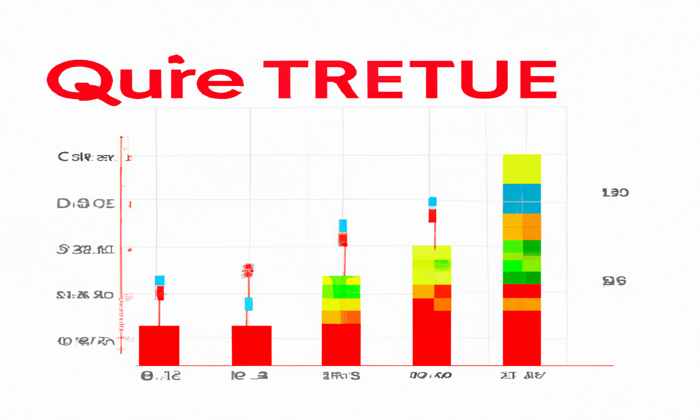The LIBRA memecoin scandal has emerged as a pivotal controversy in the crypto landscape, particularly due to Circle’s recent decision to freeze approximately $58 million in USDC linked to the project. This substantial action highlights the ongoing legal complexities surrounding the LIBRA token, which is currently embroiled in a high-stakes lawsuit involving disgruntled investors and the venture firm Kelsier Ventures. Reports from blockchain analytics firm Arkham reveal that two Solana wallets tied to the LIBRA deployer are now inaccessible, escalating tensions around the handling of funds in the cryptocurrency sphere. As the Southern District of New York continues to explore the ramifications of this situation, the fallout includes significant scrutiny on the creators behind the LIBRA token and broader discussions about cryptocurrency regulation. With political outrage surfacing in Argentina over the scandal’s impact on investors, the implications of this crypto controversy could resonate far beyond the immediate financial losses, shaping future legal frameworks in the industry.
In recent developments within the cryptocurrency arena, the LIBRA memecoin incident has captured widespread attention following the freezing of funds linked to its deployment. Often referred to as a crypto debacle, this incident has triggered a cascade of legal actions against those perceived as responsible, including the notable firm Kelsier Ventures. Legal experts now watch closely as the lawsuit progresses in New York, given its potential implications for future accountability in crypto ventures. Many believe this scandal illustrates larger systemic issues within the crypto world, including regulatory gaps that may leave investors vulnerable to unforeseen risks. As countries like Argentina grapple with the fallout of the LIBRA token’s rapid rise and fall, the discussions surrounding crypto integrity, market manipulation, and investor protection become more pressing.
The Impact of the LIBRA Memecoin Scandal
The LIBRA memecoin scandal has sent shockwaves throughout the cryptocurrency market, revealing deep-seated vulnerabilities within the ecosystem. A staggering $57 million in USDC was frozen by Circle, a move that underscores the severity of the situation and its implications for investor trust. This scandal not only involved a substantial financial instrument but also cast a shadow on the legitimacy of crypto ventures, which have been under scrutiny for lacking regulatory oversight and protections. As the case unfolds, it highlights the necessity for stricter regulations in the cryptocurrency sector to protect investors from similar controversies in the future.
The fallout from the LIBRA memecoin incident has also escalated into a broader discussion about corporate responsibility in the cryptocurrency space. When investors pour their resources into a project, they often rely on transparent practices and ethical dealings from its creators. With numerous investors facing significant monetary losses exceeding $250 million, the implications for digital assets are dire. This scandal has prompted calls for increased accountability among crypto firms, both in their marketing strategies and operational conduct, as stakeholders advocate for measures that can limit the exploitation of market enthusiasm.
Circle’s Response and the USDC Freeze
Circle’s decision to freeze $57 million in USDC tied to the LIBRA project highlights the company’s proactive stance in managing potential risks associated with its digital currency. The technology behind USDC allows for real-time data monitoring and intervention capabilities, enabling Circle to act quickly in safeguarding its assets and those of its users. By employing its multisig freeze authority, Circle not only protects its financial integrity but also reinforces the need for responsible liquidity management in a rapidly evolving and often tumultuous crypto landscape.
The freezing of assets linked to LIBRA reflects broader trends observed in recent cryptocurrency controversies, where regulations are becoming increasingly crucial. As investors navigate the complexities of digital finance, the assurance that issuers like Circle can respond effectively to potential mismanagement or fraud is vital. The proactive measures taken may foster greater confidence among stakeholders and pave the way for improved regulatory frameworks aimed at overseeing such projects in the future, particularly as the crypto marketplace continues to expand.
Kelsier Ventures and Legal Repercussions
Kelsier Ventures, alongside its co-founders, has found itself at the center of a legal storm following the LIBRA memecoin launch fiasco. The ongoing class-action lawsuit initiated by hundreds of investors calls into question the ethical practices of cryptocurrency ventures and their founders. The lawsuit has implications not only for Kelsier Ventures but also for the entire crypto community as it seeks greater accountability and transparency from those behind digital assets. The involvement of prominent legal firms adds further weight to the claims made by investors, suggesting that the outcomes of these proceedings could shape future crypto regulations.
The repercussions for Kelsier Ventures extend beyond a potential financial settlement as the case garners more media attention and public scrutiny. If found liable, Kelsier Ventures and its co-founders may set a legal precedent that governs how cryptocurrency projects operate moving forward. Investors are keenly observing this case as it may introduce essential guidelines requiring clearer communications about the risks and responsibilities associated with investing in digital currencies. The evolving landscape of crypto regulations will likely be influenced by the outcomes of lawsuits such as this, marking a pivotal moment for the industry.
Argentina’s Political Response to Cryptocurrency Issues
The LIBRA scandal has ignited not only investor outrage but also significant political repercussions in Argentina. President Javier Milei, initially a supporter of the LIBRA token, faced intense backlash from the public and political opposition following the rapid decline in the asset’s value. As a result of the massive financial losses incurred by investors, demands for impeachment grew louder, prompting further scrutiny into governmental oversight of the burgeoning cryptocurrency sector. The scandal brought to light serious questions about the regulatory framework surrounding cryptocurrencies in Argentina and their potential effects on the national economy.
Despite the establishment of a governmental task force to investigate the LIBRA project, President Milei’s decision to dissolve it raised concerns about transparency and accountability within his administration. The fallout from the LIBRA memecoin scandal illustrates how intertwined politics and cryptocurrency can be, especially in regions where digital assets are becoming increasingly popular, yet lacking formal regulation. This incident may serve as a catalyst for more stringent regulations to govern the cryptocurrency market in Argentina, leading to a more secure investment environment for the future.
Future Implications for Crypto Regulations
The LIBRA memecoin scandal could serve as a critical turning point for regulations surrounding the cryptocurrency market. As legal actions unfold, lawmakers may be prompted to draft comprehensive regulations that address the gaps exposed by this incident. Investors, regulators, and crypto firms alike are closely monitoring the case and its implications, as a successful legal outcome for the plaintiffs may inspire similar lawsuits in the future. This potential shift could pave the way for a more robust regulatory framework, ensuring that investors are provided with adequate protections against exploitation and misinformation.
Furthermore, the scrutiny surrounding the LIBRA token could also spur discussions about the roles and responsibilities of cryptocurrency issuers and promoters. Increased emphasis on ethical marketing practices and full disclosure of investment risks might emerge as key cornerstones of future regulations. The scandals in the crypto space highlight the urgency for national policies that adapt to the fast-changing digital landscape while protecting consumers. As headlines of controversies like the LIBRA memecoin scandal emerge, it becomes clearer that a balanced approach to regulation—one that fosters innovation while ensuring accountability—is essential for the sustainable evolution of the cryptocurrency industry.
Investors’ Perspective: Fighting for Accountability
For investors impacted by the LIBRA memecoin scandal, the quest for accountability is paramount. Many are not just seeking financial restitution but also a broader acknowledgment of the failures in the project’s management and oversight. The growing dissatisfaction among cryptocurrency investors reflects a critical awareness of the risks involved in this speculative market. With financial losses mounting, the implications of this scandal extend beyond monetary value; it is about reclaiming trust in an industry rife with volatility and uncertainty.
The ongoing litigation against Kelsier Ventures exemplifies the shift in investor sentiment, where individuals are increasingly willing to hold creators and project developers accountable for their promises and performance. This emerging trend could lead to a newfound diligence among investors, encouraging them to demand transparency, due diligence, and accountability from crypto ventures before committing their capital. As this case unfolds, it may provide a vital template for how future disputes in the crypto space are addressed, emphasizing the need for greater investor protections across the board.
The Role of Transparency in the Crypto Market
The LIBRA memecoin scandal has highlighted the critical importance of transparency within the cryptocurrency market. Investors are increasingly seeking clarity regarding the operational practices of crypto projects to shield themselves from potential pitfalls. Transparency in communication, especially about risks and supply management, will be integral to restoring investor confidence following the fallout from the LIBRA affair. By demanding more openness from token projects, investors can better assess the viability and integrity of potential investments.
As the crypto landscape matures, the call for transparency will likely grow louder, influencing both market participants and regulatory frameworks. The fallout from high-profile scandals like LIBRA may trigger new standards for disclosure, where projects must be held accountable not just for their performance but also for the transparency of their operations. This shift could foster a healthier investment environment, reducing the risks associated with speculative assets and encouraging responsible practices among cryptocurrency developers and issuers.
Leveraging Legal Outcomes to Shape Future Crypto Launches
The outcomes of legal cases stemming from the LIBRA memecoin scandal are poised to influence how new cryptocurrencies are launched in the future. Lessons learned from the ongoing class-action lawsuit could lead to stricter guidelines regarding how crypto ventures communicate their objectives and manage investor relationships. If the courts rule in favor of investors, it might prompt upcoming projects to adopt more comprehensive risk management practices, ensuring that investors are fully informed before engaging.
By setting a precedent for accountability, the legal outcomes could catalyze a shift in the industry, where both emerging and established crypto projects prioritize transparency and ethical marketing approaches. Legal repercussions could compel crypto creators to adhere to more defined protocols, safeguarding investors from potential losses in a space that often seems to prioritize growth over responsibility. The potential ramifications of the LIBRA case extend well beyond this particular incident, shaping the future landscape of cryptocurrency launches and fostering a more sustainable ecosystem.
Understanding the Broader Crypto Controversies
The LIBRA memecoin scandal is part of a larger narrative of controversies that have plagued the cryptocurrency world. With incidents like the USDC freeze and ongoing debates about what constitutes fair use and operation in this space, the need for comprehensive regulations has never been clearer. As public trust erodes, the call for accountability rises, pushing regulators to take necessary steps to curb unscrupulous practices that threaten the integrity of the market.
Investors are not just passive participants in the cryptocurrency space; they are beginning to act as watchdogs, demanding fairness and accountability from ventures like LIBRA. As knowledge about the complexities and risks of digital assets grows, so does the ability of investors to influence the direction of the market. This evolution highlights the interplay between market forces and regulatory oversight, urging stakeholders to work together towards a more ethical framework in the expanding realm of cryptocurrencies.
Frequently Asked Questions
What led to the LIBRA memecoin scandal and the freezing of USDC by Circle?
The LIBRA memecoin scandal erupted after Circle froze nearly $58 million in USDC linked to the LIBRA project. This scandal is part of a larger crypto controversy involving a class-action lawsuit against Kelsier Ventures and its co-founders, alleging misleading practices during the token’s launch.
How has the LIBRA token scandal impacted investors?
The LIBRA memecoin scandal has caused significant financial losses for investors, with estimates exceeding $250 million. After insiders rapidly liquidated a substantial portion of the token’s supply, the value of LIBRA plummeted by over 90%, leading to widespread outrage and a lawsuit addressing these grievances.
What role does the Circle USDC freeze play in the LIBRA memecoin scandal?
The Circle USDC freeze is a critical development in the LIBRA memecoin scandal, as it indicates legal action is being taken to prevent further losses. The freeze targets wallets linked to the LIBRA project and reflects ongoing investigations by American courts to protect investors and ensure potential restitution.
What are the legal implications of the LIBRA token lawsuit?
The LIBRA token lawsuit, initiated by a New York law firm, targets Kelsier Ventures and its co-founders for alleged misconduct during the token’s launch. The case seeks to hold them accountable for misleading marketing practices, which could set a precedent for future crypto controversies and enhance legal accountability in the industry.
How has political turmoil in Argentina contributed to the LIBRA memecoin controversy?
Political turmoil in Argentina has intensified the LIBRA memecoin controversy, particularly after President Javier Milei’s involvement in promoting the token. Following the financial fallout from the token’s collapse, demands for his impeachment arose when he distanced himself from the scandal and disbanded a governmental investigation task force.
What is Kelsier Ventures’ connection to the LIBRA token and the resulting scandal?
Kelsier Ventures is at the center of the LIBRA token scandal, as the company and its co-founders are named in a class-action lawsuit due to their alleged role in misleading marketing and financial practices impacting investors. The firm’s actions during the token’s launch have raised concerns and led to substantial legal repercussions.
What potential outcomes could arise from the LIBRA memecoin scandal and resulting lawsuits?
The LIBRA memecoin scandal could lead to significant changes in the cryptocurrency regulatory landscape, especially regarding accountability for founders and promoters. If the ongoing lawsuits succeed, it may establish new standards for transparent marketing practices and provide restitution for affected investors.
How did the LIBRA memecoin gain such rapid popularity initially?
The LIBRA memecoin gained rapid popularity following its launch, primarily due to aggressive promotion from Argentine President Javier Milei, who marketed it as a financial lifeline for small businesses. Initial trading saw its value soar dramatically, drawing attention and investment before the subsequent scandal unfolded.
| Key Aspect | Details |
|---|---|
| Frozen Funds | $57.65 million in USDC frozen by Circle due to LIBRA memecoin scandal. |
| Legal Actions | Ongoing class-action lawsuit against Kelsier Ventures and co-founders initiated by Burwick law firm. |
| Market Impact | LIBRA token value soared to over $5 before plummeting 90%, causing $250 million in losses for investors. |
| Political Fallout | Political outrage in Argentina with impeachment demands against President Milei for involvement in the scandal. |
| Court Involvement | Potential swift action by American courts to secure restitution for affected investors. |
Summary
The LIBRA memecoin scandal has captivated attention with its dramatic implications for investors and the cryptocurrency landscape. Following the freezing of nearly $58 million in USDC by Circle, the controversy continues to unfold amid ongoing lawsuits and significant financial losses. The situation highlights the pressing need for accountability and transparency in the crypto space, particularly as it relates to the conduct of its founders and promoters.
The LIBRA memecoin scandal has triggered a wave of legal and political fallout, recently highlighted by Circle’s decision to freeze nearly $58 million in USDC linked to the controversial cryptocurrency. On May 29, blockchain analysts revealed that two Solana wallets, associated with the LIBRA project team, contained a hefty sum now rendered inaccessible as part of this unfolding crypto controversy. This drastic measure follows an ongoing class-action lawsuit filed against Kelsier Ventures and its co-founders, as well as other parties involved, primarily addressing the mismanagement and deception surrounding the LIBRA token. Initially launched with high hopes in February 2025, the LIBRA token rapidly gained traction before its value plummeted, causing substantial losses for investors and igniting political outrage, particularly in Argentina. As consequences unfold, this iceberg of scandal emphasizes the need for accountability within the rapidly evolving cryptocurrency landscape.
Dubbed a significant incident in the cryptocurrency sector, the LIBRA memecoin controversy has emerged as a focal point of scrutiny, particularly surrounding the management of USDC and its implications for investors. Following a surge in interest and unmatched promotional efforts, particularly from Argentine officials, the LIBRA token’s meteoric rise was met with a stark decline when insiders liquidated holdings, leading to devastating impacts on the market. With legal action spiraling from multiple fronts, including a class-action lawsuit targeting the involved venture capitalists and developers, the fallout has raised urgent questions about responsibility and transparency in the crypto realm. As discussions loom over the freeze of funds tied to this scandal, investors are left grappling with the wider ramifications of cryptocurrency dynamics, especially with the emerging regulatory landscape in mind. This situation is a critical moment for the crypto community, pointing toward the urgent need for safeguards and ethical practices.














